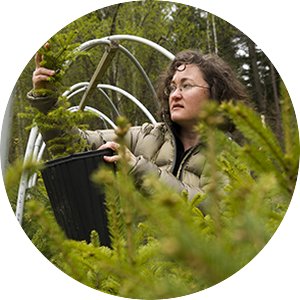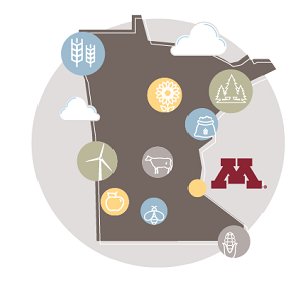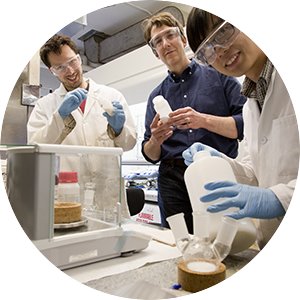
About Research at CFANS
On-campus Research
Faculty, staff and students study and work in dozens of centers that supplement and enhance the work of academic departments. Many of these centers and cooperatives include faculty from across multiple departments and colleges within the University of Minnesota as well as partners in other universities, public and private organizations.
As part of a top tier research university, CFANS is a national leader in innovative scientific discovery. The work of its talented researchers cultivates breakthrough solutions to today’s greatest challenges in food, agricultural and natural resource sciences, all with an exemplary commitment to research ethics.
Valuable resources are available to help CFANS faculty, staff and students develop and enhance research projects and secure funding for their work.
State-wide Research
CFANS boasts 10 varying research and outreach centers throughout Minnesota. Each one is designed to create cutting-edge science-based solutions to strengthen the local community, the state and inform new practices around the globe.
The Minnesota Agricultural Experiment Station (MAES) funds the research of University of Minnesota scientists to improve Minnesota's agricultural and forest products, horticultural crops, human nutrition, family and community life, and environmental quality. Learn more about MAES in this fact sheet (.pdf).
The MnDRIVE (Discovery, Research and InnoVation Economy) program partners CFANS researchers with the state’s industry leaders to develop new technologies tackling major environmental, food and cognitive function challenges.
World-wide Research
Our research efforts are not only taking place in Minnesota, but throughout the world. See where we’re working around the globe to help solve some our greatest challenges.
As the college most closely connected with the University of Minnesota's historical roots as a land-grant institution, our programs support the university’s goal of becoming one of the world’s top research universities through interdisciplinary and aligned research efforts and a systems approach to complex problems.








